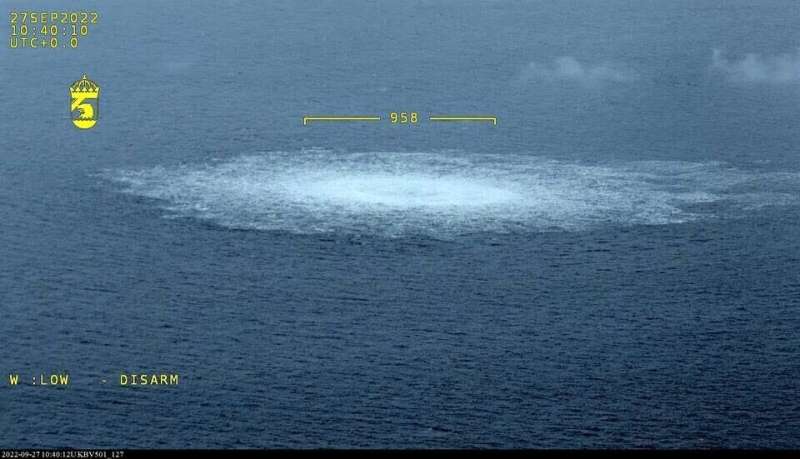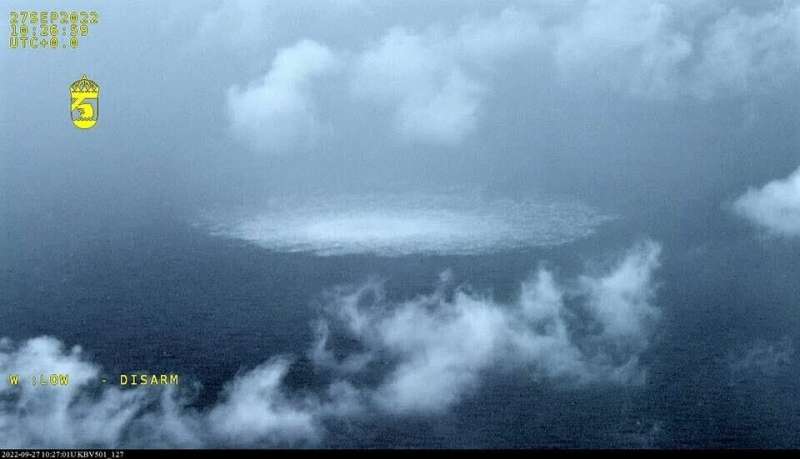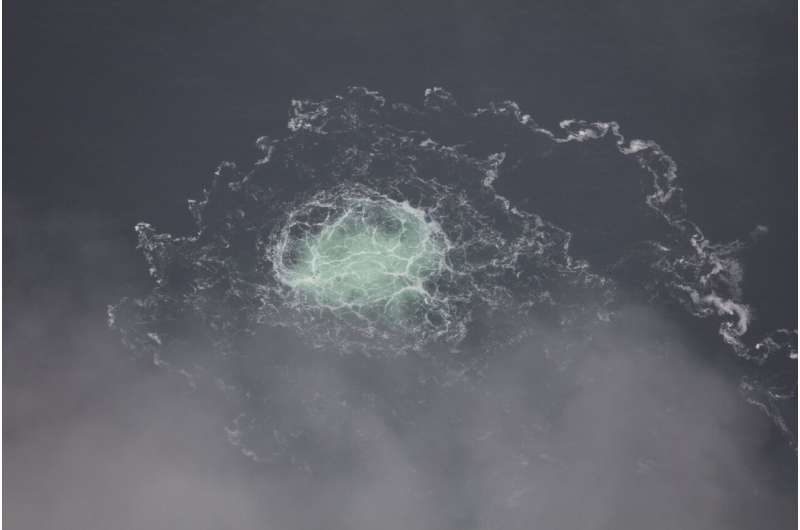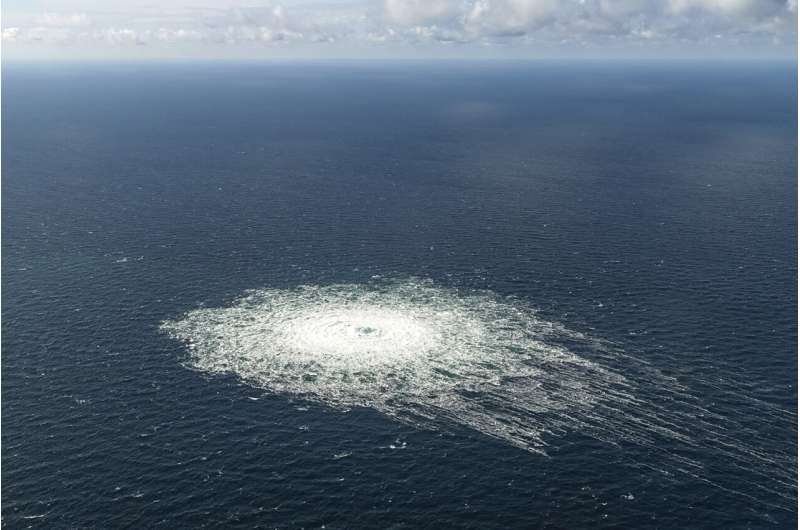Baltic Sea pipeline leak damages marine life and climate

Methane escaping from the damaged Nord Stream pipelines that run between Russia and Europe is likely to result in the biggest known gas leak to take place over a short period of time and highlights the problem of large methane escapes elsewhere around the world, scientists say.
"From what I have seen this is an unprecedented loss to the atmosphere of fossil methane in a very short time from a concentrated source,'' said President of the U.S. National Academy of Sciences Marcia McNutt. She oversaw American government efforts to assess the breadth of the 2010 BP oil spill the gulf of Mexico.
Methane acts quickly to heat the Earth. The fact that it disappears faster from the atmosphere than carbon dioxide, "is probably small consolation to the citizens of Florida and other places who are already being hit by more frequent and more deadly tropical storms, supercharged by an ocean superheated by greenhouse gas releases to the atmosphere," McNutt said in an email.
There is still uncertainty in estimating total damage, but researchers say vast plumes of this potent greenhouse gas will have significant detrimental impacts on the climate.
Immediate harm to marine life and fisheries in the Baltic Sea and to human health will also result because benzene and other trace chemicals are typically present in natural gas, researchers say.

"This will probably be the biggest gas leak ever, in terms of its rate," said Stanford University climate scientist Rob Jackson.
The velocity of the gas erupting from four documented leaks in the pipelines—which the North Atlantic Treaty Organization has attributed to sabotage—is part of what makes the impacts severe.
When methane leaks naturally leaks from vents on the ocean floor, the quantities are usually small and the gas is mostly absorbed by seawater. "But this is not a normal situation for gas release," said Jackson. "We're not talking about methane bubbling up to the surface like seltzer water, but a plume of rushing gas," he said.
Jackson and other scientists estimate that between 50% and nearly 100% of total methane emitted from the pipeline will reach the atmosphere.
The Danish government issued a worst case scenario that assumed all the gas reached the air, and German officials Thursday issued a somewhat lower one.

In the meantime, it's nearly impossible for anyone to approach the highly flammable plume to attempt to curb the release of gas, which energy experts estimate may continue until Sunday.
"Methane is very flammable—if you go in there, you'd have a good chance of it being a funeral pyre," said Ira Leifer, an atmospheric scientist. If the gas-air mix was within a certain range, an airplane could easily ignite travelling into the plume, for example.
Methane isn't the only risk. "Natural gas isn't refined to be super clean—there are trace elements of other compounds, like benzene," a carcinogen, said Leifer.
"The amount of these trace elements cumulatively entering the environment is significant right now—this will cause issues for fisheries and marine ecosystems and people who potentially eat those fish," he said.
David Archer, a professor in the geophysical sciences department at University of Chicago who focuses on the global carbon cycle, said that escape of methane in the Baltic Sea is part of the much larger worldwide problem of methane emissions.

The gas is a major contributor to climate change, responsible for a significant share of the climate disruption people are already experiencing. That is because it is 82.5 times more potent than carbon dioxide at absorbing the sun's heat and warming the Earth, over the short term.
Climate scientist have found that methane emissions from the oil and gas industry are far worse than what companies are reporting, despite claims by major companies that they've reduced their emissions.
Scientists measuring methane from satellites in space have found that emissions from oil and gas operations are usually at least twice as high as what the companies reported, said Thomas Lauvaux, climate scientist at University of Reims in France.
Many of those so-called leaks are not accidental. Companies release the gas during routine maintenance. Lauvaux and other scientists observed more than 1,500 major methane leaks globally, and potentially tens of thousands of smaller leaks, using satellites, he said.
© 2022 The Associated Press. All rights reserved. This material may not be published, broadcast, rewritten or redistributed without permission.


















